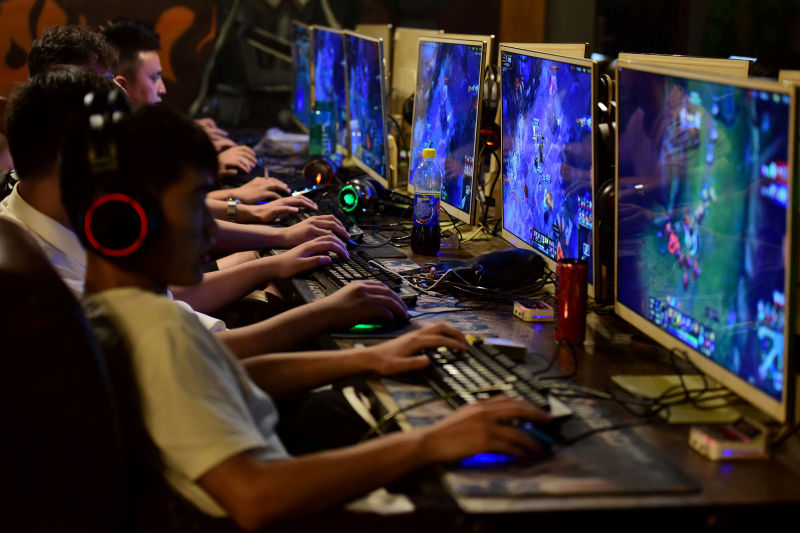Shares of China’s biggest gaming companies plunged on Friday after Chinese regulators announced rules that aim to curb spending and rewards that encourage video games.
The new rules, which effectively set spending limits for online games, dealt a big blow to the world’s biggest gaming market, which returned to growth this year.
Online games will now be banned from giving players rewards if they log in every day, if they spend on the game for the first time or if they spend several times on the game consecutively. All are these are common incentives in online games.
ALSO SEE: Inflation Worries Mount as Exporters Hunt Ways Around Red Sea
Shares in Tencent Holdings, the world’s biggest gaming company, tumbled as much as 16%, while those of its closest rival, NetEase, plunged by 25% after the National Press and Publication Administrations published the new draft rules.
Tencent stock were down 12.3% after the close of trading, while Netease plunged 24% as gaming represents about 70% of its revenue, whereas it generates about 30% of Tencent’s income, according to a market analyst.
The news wiped more than $60 billion in market value off the two stocks on Friday afternoon.
“It’s not necessarily the regulation itself – it’s the policy risk that’s too high,” said Steven Leung, executive director of institutional sales at broker UOB Kay Hian in Hong Kong.
“People had thought this kind of risk should have been over and had started to look at fundamentals again. It hurts confidence a lot.”
Beijing has become increasingly tough on video games over the years. In 2021, China set strict playtime limit for players younger than 18 and suspended the approvals of new video games for about eight months, citing gaming addiction concerns.
Although the crackdown formally ended last year with the resumption of new game approvals, regulators have continued to dish out restrictions to curb “in-game” spending.
Limits to be set on players topping up their wallets
The new rules revealed on Friday are the most explicit regulations yet aimed at curbing in-game spending. Besides banning reward features, games are also required to set limits on how much players can top up their digital wallets for in-game spending.
Games are also banned from offering probability-based lucky draw features to minors, and from enabling the speculation and auction of virtual gaming items.
But the new rules included a proposal that widely expected to be welcomed by the industry, requiring regulators to process game approvals within 60 days.
The new rules also show Beijing’s concerns over user data, as they require game publishers to store their servers within China.
The administration is seeking public comment on the rules through January 22, 2024.
As a result of Beijing’s crackdown on gaming in 2021, 2022 was China’s gaming industry’s most difficult year on record as total revenue shrank for the first time.
China’s video game market returned to growth this year as domestic revenue rose 13% to 303 billion yuan ($42.6 billion), according to Industry association CGIGC.
- Reuters with additional editing by Jim Pollard
NOTE: Further details were added to this report on December 22, 2023.
ALSO SEE:
Tencent Pouring Resources Into Big Budget Console Games
China Proposes Eight-Minute Limit on Smartphone Use by Kids
Tencent Seen Aiming at Majority Stakes in Foreign Gaming Firms
Approvals Signal an End to China’s Gaming Crackdown
China Videogame Sector Reports First-Ever Drop in Revenue
China Slashes Online Gaming to Three Hours a Week for Young People
Tencent Curbs Video Games After State Media Calls Them ‘Spiritual Opium’
























